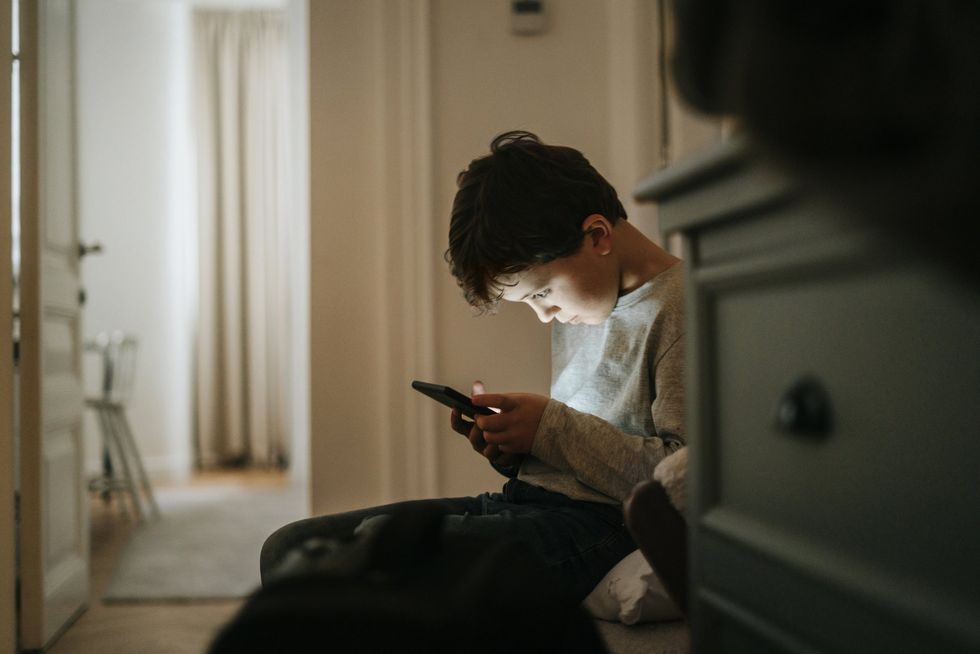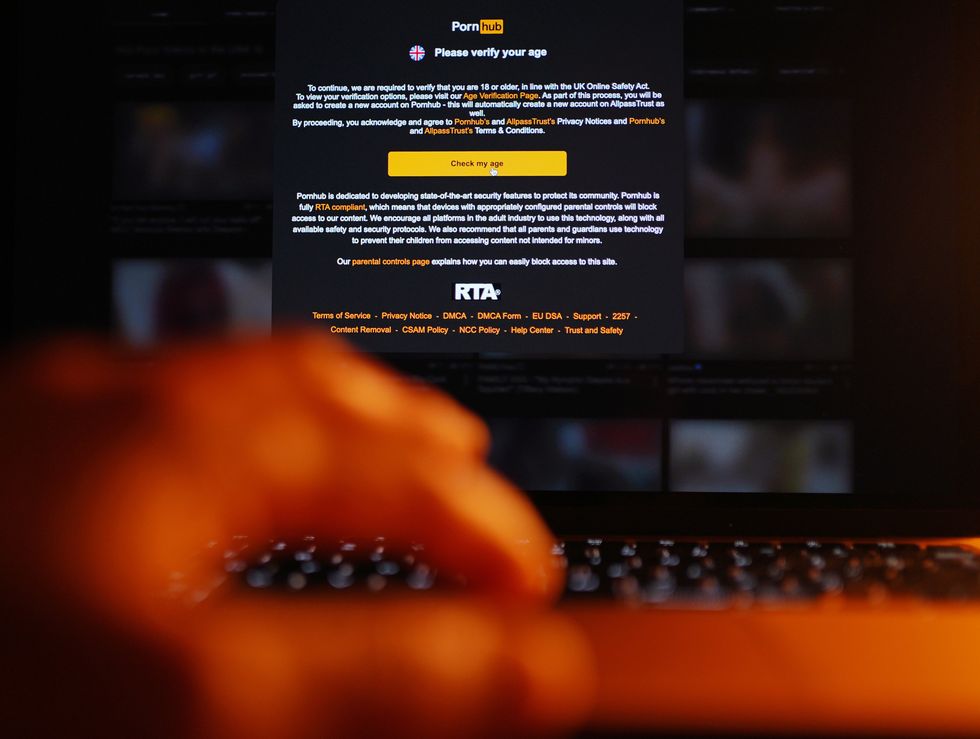


Britain facing 'tsunami' of porn addiction as children as young as EIGHT exposed to shocking content

Britain is facing a "tsunami" of porn addiction as rehab clinics warn children are being exposed as young as eight.
The news comes alongside research showing more than one in five men aged 18–35 now suffer from erectile dysfunction (ED) - once considered a problem of middle age.
Specialist centres say cases of porn addiction among under-25s have doubled since before the pandemic, with a new wave of teenagers presenting with depression, anxiety, and sexual dysfunction that some experts believe are rooted in compulsive pornography use.
The UK Addiction Treatment Group (UKAT) said its confidential online porn help service logged 6,000 visits in the past three months - the equivalent of 65-a-day and nearly 30 per cent up on the same period last year.
The centre has now launched a dedicated programme across its nine clinics to cope with demand.
It comes as research shows increasing numbers of young men are experiencing erectile dysfunction (ED) - with the odds of ED significantly higher among those scoring highly for problematic pornography use.
Zaheen Ahmed, Head of Therapy at UKAT said: “The tsunami is already here for those with porn addiction. The lockdown exacerbated this.
"One of the biggest problems is the smart phone - everything is available in their hands and porn addiction changes the way the brain develops.
"We’ve seen a sharp rise in under-25s needing treatment, and the age of first exposure is dropping. Some clients tell us they first accessed porn at just eight years old."
He added: “One of the warning signs we see is when someone starts chasing more extreme content. Porn addiction works like other addictions - the brain becomes desensitised, and users need more hardcore videos and imagery to feel the same effect.

A recent Ofcom study found that eight per cent of children aged 8–14 had visited a porn site in a single month, including three per cent of eight–nine-year-olds
|GETTY
"It can lead to users watching child porn or incest porn. That escalation also means people struggle to have meaningful or loving relationships and real-life intimacy.”
He said the impact can have other devastating effects: “Addicts are at risk of sexual dysfunction and social anxiety - porn addiction changes how the brain develops.”
A study published in The Journal of Sexual Medicine analysed 3,419 men aged 18–35 and found 21.5 per cent of those who were sexually active reported erectile dysfunction - a rate far higher than would normally be expected in this age group.
Young men with the most problematic use faced double the odds of erectile dysfunction compared to their peers - even after researchers adjusted for risk factors such as age, physical health, smoking, drinking or exercise.
A separate study of University students published in the International Journal of Environmental Research and Public Health found problematic pornography use was strongly associated with anxiety, depression, stress, loneliness, and suicidal thoughts.
Mary Sharpe, CEO of sex education charity - The Reward Foundation, said: “Adolescents are especially vulnerable because their brains are highly plastic.

The Online Safety Act is meant to prevent children from accessing harmful online content
|PA
"Neurons that fire together wire together - and when porn is the repeated trigger, those pathways become entrenched.
"Too often young men are given antidepressants or Viagra, when the root cause is compulsive porn use.”
The UK Government has also raised concerns.
A Home Office literature review found evidence linking pornography use to harmful sexual attitudes and behaviours, including greater acceptance of aggression, coercion, and objectification.
Official UK figures underline how deeply pornography is seeping into childhood.
A recent Ofcom study found that eight per cent of children aged 8–14 had visited a porn site in a single month, including three per cent of eight–nine-year-olds.
Many youngsters have reported stumbling across porn by accident on phones or social media.Clinicians are also alarmed at the type of material teenagers are being exposed to.
In Scotland, prosecutors now report that around 60 per cent of rape indictments involve allegations of sexual strangulation - behaviour experts say is increasingly copied from online porn.
The government insists it is tightening controls.
Under the Online Safety Act, Ofcom has launched probes into more than 30 pornography websites to check compliance with strict new age-verification rules.
Sites that fail could be blocked, but critics warn many youngsters are getting around the age verification checks by using stolen or false identities or Virtual Private Networks which allow them to bypass the requirements of the Online Safety Act by using the internet as though they are in another country.
Baroness Bertin’s Pornography Review, released earlier this year, admitted there are “serious gaps” in enforcement and called for surprise inspections and tougher spot checks.
Campaigners are urging a national awareness drive to help parents, teachers and foster carers spot the signs - from mood swings and secretive screen use to poor sleep and falling grades.
They want schools to talk openly about porn addiction and sexting, and for more resources to be made available for families already in crisis.
A government spokesperson said: “The fact that children as young as 8 are being exposed to pornography online is not just shocking — it’s deeply damaging, fuelling addiction, and distorting healthy development at the most critical stage of their lives.
“The Online Safety Act requires that people now prove their age to access pornography online.
"We recognise that technology alone cannot solve this challenge, so we are also strengthening education in schools.
"The new RSHE guidance responds to the realities facing children today, making sure that all young people understand healthy relationships, sexual ethics beyond consent and harmful online content such as pornography and deepfakes.”
